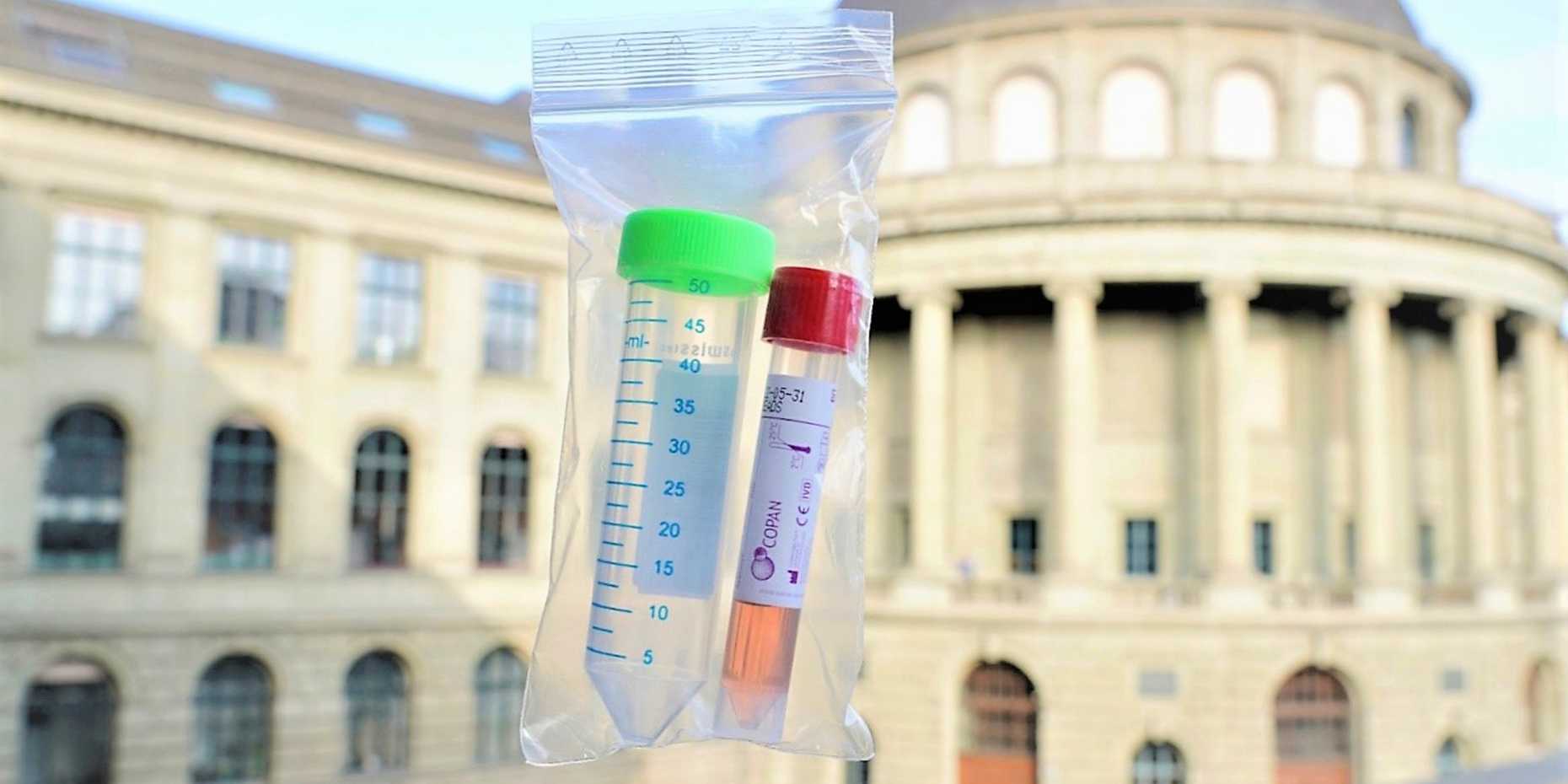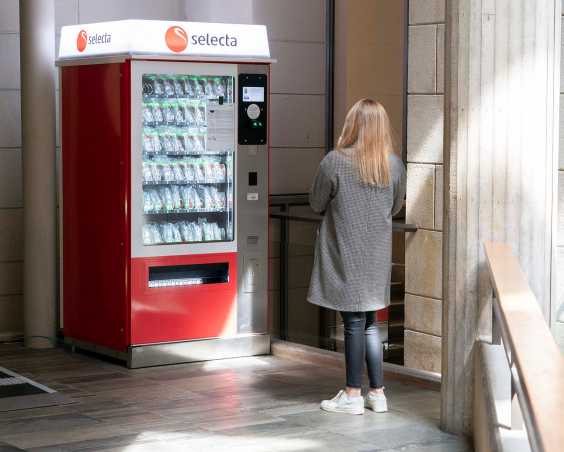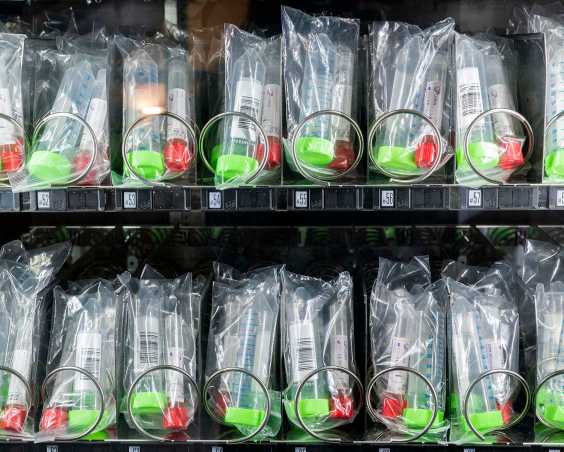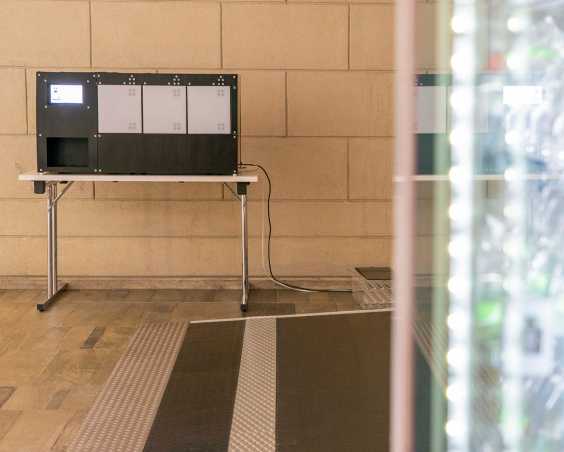Regular saliva PCR tests for ETH members
ETH Zurich is setting up stations for saliva PCR tests where staff and students can be tested free of charge on a regular basis. Testing will start on 20 April, with capacity being increased on an ongoing basis.

Anyone in the main building passing from the main hall to the Südhof will encounter a new Selecta machine filled with plastic tubes. Opposite this is a table with another machine, one that will receive the tubes – filled with saliva. These two machines constitute the first coronavirus testing station at ETH, and further test stations are planned. They will hopefully make an important contribution to early identification of infected individuals.
From Tuesday, 20 April, ETH members can register for the tests and then collect a test kit at the Selecta machine each week. They will hand over the tube filled with saliva to the other machine on the morning of the following day. Eight such sample tubes will then be pooled by a robot in the laboratory of NEXUS, a technology platform of ETH Zurich, i.e. pipetted into a common tube. Both the pooled and individual samples will then be transported to the Irchel campus, where they will be used to perform a PCR analysis at the Institute of Medical Virology of the University of Zurich. If this test is negative, all eight test persons will usually be informed of the result on the same day. If the test is positive, the eight samples will then be studied individually. In this case, it may take until the following day for the definitive test result to be communicated. “This solution will enable us to offer ETH members a simple but accurate testing process,” says Jörg Goldhahn, Professor of Translational Medicine and head of the project.
Using tests to avoid transmission
The offer is currently directed at staff and students who are working on campus because they need to use the infrastructure on site. This approach is based on the guidance of the Department of Health of the Canton of Zurich, which recommends regular testing in situations where safety measures cannot be implemented in full and there is an increased risk of transmission. “We want to use this low-threshold test offer to help prevent infections at ETH,” says Goldhahn. At the same time, he says, it is about creating a safer environment in which ETH members can work.
Staff and students who are interested can register via NEXUS and sign up for the tests. They will then be guided to the machines mentioned above. Users will identify themselves using their ETH card or student ID card and a QR code generated by NEXUS. The project team was able to base its development of this solution on experience with similar projects, such as the extensive longitudinal Covid-19 study at ETH Zurich, which also made use of the NEXUS IT infrastructure. This platform not only ensures participants’ anonymity, but an algorithm is also in place to prevent tests being carried out more than once a week.



This new solution also involved bringing new project partners from ETH on board, and the ETH Zurich Product Development Group developed the second machine for receiving the tubes as part of a hackathon. “It was important for us to be able to issue and receive the test tubes in a contact-free way in order to avoid any possible infection during testing,” says Stephan Fox, head of the “Feasibility Lab for Healthcare Innovation” that forms part of this group.
Scalable capacities
A small number of tests will be available from the test station in the main building in the first few weeks, with capacity being gradually ramped up. These tests will be allocated on a first-come-first-served basis. A second test station is due to be set up on the Hönggerberg campus at the end of April. Capacities can be increased to 3,000 tests per week over the medium term, enabling ETH to respond accordingly once the work-from-home rules are eased.
There could, however, be shortages during this ramp-up phase and Goldhahn asks all those ETH members interested in testing who might not receive an appointment to be patient. “What is important is that no one comes to ETH just to be tested,” emphasises Goldhahn. Those who are working or studying at home should go to a pharmacy for testing.
Comments
No comments yet